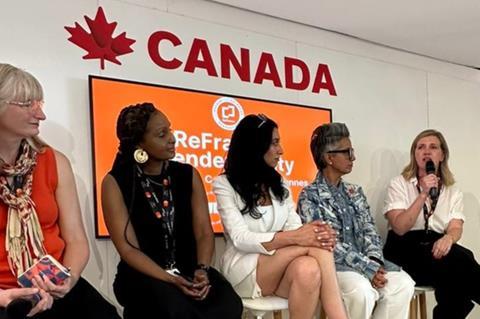CHICAGO — Public libraries everywhere have embraced inclusion and expanded their programming for youth with disabilities, especially autism. It’s imperative that libraries also offer rich and age-appropriate initiatives for adults with developmental disabilities (DD); after all, as youth now served by their libraries grow up and reach adulthood, they will continue to want and expect libraries to be responsive to their needs. “Library Programming for Adults with Developmental Disabilities,” a new book published by ALA Editions, is from Barbara Klipper and Carrie Scott Banks, two librarians with a long-standing focus on inclusivity. From this comprehensive resource, readers will:
- learn key ideas about DD, such as an examination and debunking of commonly held stereotypes and misconceptions about people with DD and the role ableism plays in perpetuating them;
- be introduced to self-advocates and their ways of viewing DD, including terminology and the Neurodiversity movement;
- get pointers on how to create a culture of inclusion at the library, with discussions of Universal Design and UDL, staff training, and anticipating the unexpected;
- explore the needs of adults with DD who are also LGBTQA+, people of color, immigrants and English language learners, seniors, those with dual diagnoses, and other aspects of intersectionality in library programming;
- understand how to build on and modify existing children’s and YA practice to ensure that library users with DD receive age-appropriate and respectful library service;
- learn how to make virtual programming accessible and which programs can be successfully brought online;
- discover a myriad of programs ready to adapt for their own libraries, such as Sensory Storytime for adults, book clubs, arts and crafts programs, adaptive gaming, job skills workshops, cooking programs, and many more;
- see how programming for adults with DD works in academic libraries; and
- gain skills for outreach and keeping current, with guidance on forming and strengthening partnerships, advocacy, fundraising, marketing, and additional resources for deepening knowledge of DD.
Klipper, a retired librarian, has championed library access for people with disabilities since 2002 when she worked at The Ferguson Library in Stamford, Connecticut. Her book “Programming for Children and Teens with Autism Spectrum Disorder” was updated by Dr. Amelia Anderson in 2021. She is also the creator and funder of the Autism Welcome Here grant. Banks has been in charge of Brooklyn Public Library’s Inclusive Services since 1997 and taught at Pratt Institute from 2013 to 2015. In 2012 she was named a Library Journal Mover & Shaker. Active in ASGCLA and ALSC since 2000, she was the 2020 President of ASGCLA. Her other publications as co-author include “Including Families of Children with Special Needs” and “Libraries and Garden: Growing Together.”
Many book retailers and distributors are experiencing service disruptions or delays, including Amazon. For speediest service, order direct from the ALA Store. ALA Store purchases fund advocacy, awareness and accreditation programs for library and information professionals worldwide. ALA Editions | ALA Neal-Schuman publishes resources used by library and information professionals, scholars, students, and educators to improve programs and services, build on best practices, enhance pedagogy, share research, develop leadership, and promote advocacy. ALA authors and developers are leaders in their fields, and their content is published in a variety of print and electronic formats. Contact ALA Editions | ALA Neal-Schuman at [email protected].
Originally published at https://www.ala.org/news/member-news/2021/07/programming-adults-developmental-disabilities
ShowBiz - Show Biz clinic originally published at ShowBiz - Show Biz clinic





